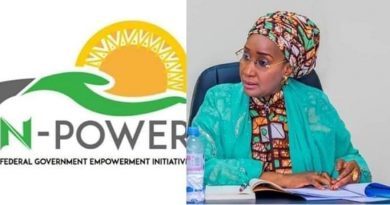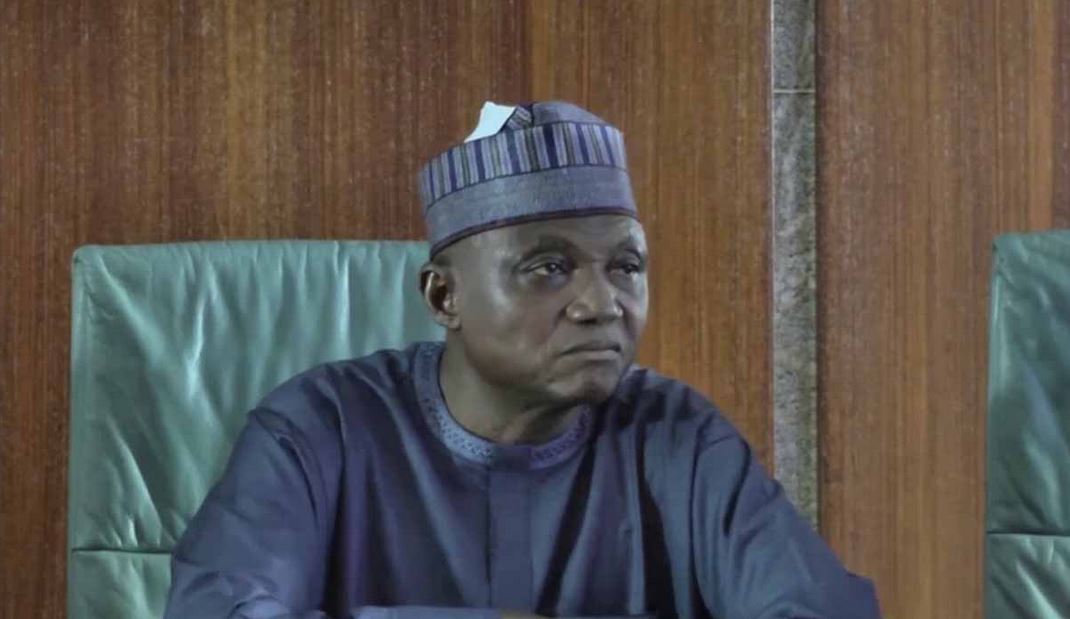The Unfairness in Transparency International Report on Nigeria — Economic Confidential
The Unfairness in Transparency International Report on Nigeria
By Abdullahi Haruna ( Haruspice)
The latest Transparency International’s tagged 2019 Corruption Perception Index(CPI) has begun to generate diverse arguments and debates among Nigerians belonging to different socio-economic and political spectra in the country.
Of course, as expected, the debates and counter debates have assumed different political colourations and infusions thus losing the essence of a scholarly debate, which is to establish the truth or find a solution to a problem.
For the purpose of context, the 2019 report ranked Nigeria as the second most corrupt in West Africa sub-region, Guinea Bissau being first.
The report also placed Nigeria on 149th position out of the 180 countries ranked by the agency based in Berlin, Germany.
Also, the report said Nigeria scored 25 out of the 100 marks used in assessing perceived corruption in the public sector, a very miserable score by every standard.
While the opposition and critics of the Muhammadu Buhari administration have latched on the report to lambaste the government, officials of the administration like Lai Mohammed, information minister and Garba Shehu, one of the President’s spokespersons have risen in defence of the government.
Escalating the position of Lai Mohammed further, it is essential to question the fairness and validity of the latest TI’s report especially its sources of data which is in the public domain that the rating institutions have had their data flat for years now.
For example, the Global Insight Country Risk Ratings has stood at 22 for 10 years now while the Political Risk Service International Country Risk Grade stands at 24 for 5 years. Meanwhile, the World Bank Country Policy and Institutional Assessment have stood at 35 for ten years.
What the above means is that the rating institutions have not generated any new data within the aforementioned period, yet TI has consistently churned out different CPI’s report for Nigeria within the period. The implication of this is that the data have been flat all along. But can any factual analysis be done on flat data knowing full well that data are a function of variables influenced by different behaviour? Not at all!
And that’s where the validity of the current TI’s analysis on Corruption Perception Index is in great doubt. Certainly, there is no way data from the rating institutions would have remained flat for all these years. There must either be improvement, decline or fluctuations in whatever kind. Variables are never static. Without a shred of doubt, TI’s report from the analysis of its data shows that it failed grossly to take into consideration some of the progress Nigeria has made in the last four years to arrive its latest ranking.
By the way, my interpretation of the efforts of the officials of government to fault the report of the TI is that the Ease of Doing Business administration initiated in May 2017 through an Executive Order is about the biggest policy of the government that has actually stymied corruption in the public sector unlike what obtained in the past where anything goes.
As with all public sector reforms, those who are conversant with Public Policy and Development Economics know that reforms don’t begin to generate expected results overnight. They go through gestation and delivery periods before their impacts can be felt. Sometimes it takes three solid years before a reform begins to generate visible results!
It’s the same way with the Ease of Doing Business which became operational when Vice President Yemi Osinbajo, then Acting President, signed the Executive Order 001 into law. The EO was tagged ‘Promotion of Transparency and Efficiency in the Business Environment.’
It was a historic piece of executive order which was hailed by many public policy experts then, with majority agreeing that the policy would help eliminate bureaucratic bottlenecks usually encountered in the business environment.
But I can even wager a bet that only a few people can recall with precision how the Ease of Doing Business Order came into being.
President Buhari knew from the inception of his administration that he needed to eliminate bureaucratic bottlenecks in the business environment for businesses to thrive. To do this, he set up the Presidential Enabling Business Environment Council (PEBEC) in July 2016.
The Council, which is headed by the Vice President, is an inter-ministerial body comprises some ministers and senior functionaries of government who interface with the MDAs in order to actualize its mission and vision. The council’s first historic effort was what led to the Executive Order 001.
At this juncture, it is essential to ask: how far has the Order gone since it was gazetted by the government? A World Bank Report of 2020 on the Global Ease of Doing Business ranked Nigeria 131 our of the 190 countries surveyed. Nigeria moved up 15 places from the 146th position in 2019. If this is not a material improvement in the elimination of bureaucratic bottlenecks usually enabled by corrupt practices in the public sector, then one wonders how TI came about its latest finding on corruption perception in Nigeria!
Warts and all, in all honesty, can any rational mind then fault Alhaji Lai Mohammed’s logic when he said the data the TI relied on to rate Nigeria in its latest rating were suspicious? Which implies that the report suffers from serious credibility issue. If the World Bank can say Nigeria has made a significant improvement in the business environment (public sector), then the TI report needs to be critically scrutinized.
Truth is, the corruption that goes on in the public sector is largely perpetrated during the conduct of government business. The central focus of the Ease of Doing Business is deepening transparency and enabling accountability in the conduct of government business through the instrumentality of institutional mechanisms.
If TI’s report is about perception of corruption in the public sector, it’s pertinent again to ask why it did not consider the Ease of Doing Business policy of the administration before arriving at its jaundiced assessment of the anti-corruption efforts of the government.
In any case, the report as faulty as it is is mere perception, which is substantially different from the reality in Nigeria. Does it mean that the Buhari administration has completely eliminated corruption in the public sector? Far from it, but to say that the government has not made substantial progress in curbing corruption in the public sector is clearly uncharitable.
Abdullahi Haruna Haruspice writes from Abuja






